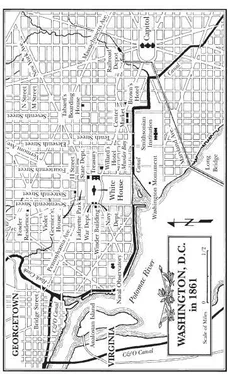John Miller - The First Assassin
Здесь есть возможность читать онлайн «John Miller - The First Assassin» весь текст электронной книги совершенно бесплатно (целиком полную версию без сокращений). В некоторых случаях можно слушать аудио, скачать через торрент в формате fb2 и присутствует краткое содержание. Жанр: Исторический детектив, на английском языке. Описание произведения, (предисловие) а так же отзывы посетителей доступны на портале библиотеки ЛибКат.
- Название:The First Assassin
- Автор:
- Жанр:
- Год:неизвестен
- ISBN:нет данных
- Рейтинг книги:3 / 5. Голосов: 1
-
Избранное:Добавить в избранное
- Отзывы:
-
Ваша оценка:
- 60
- 1
- 2
- 3
- 4
- 5
The First Assassin: краткое содержание, описание и аннотация
Предлагаем к чтению аннотацию, описание, краткое содержание или предисловие (зависит от того, что написал сам автор книги «The First Assassin»). Если вы не нашли необходимую информацию о книге — напишите в комментариях, мы постараемся отыскать её.
The First Assassin — читать онлайн бесплатно полную книгу (весь текст) целиком
Ниже представлен текст книги, разбитый по страницам. Система сохранения места последней прочитанной страницы, позволяет с удобством читать онлайн бесплатно книгу «The First Assassin», без необходимости каждый раз заново искать на чём Вы остановились. Поставьте закладку, и сможете в любой момент перейти на страницу, на которой закончили чтение.
Интервал:
Закладка:
“Calhoun,” she said, turning away from the window and toward the cat. “Let’s keep an eye out for this fellow.”
Portia did not know how much time had passed when she woke up, but the shadows had grown long and the sun was plunging into the horizon. For a few minutes she did not move. The driver sat just a few feet away from her. She had not gotten a good look at him before hopping into his cart and burrowing beneath his rice sacks. If he had detected her, she probably would have known by now.
Could she trust him? All Portia could see was the back of his head. The gray flecks hinted at someone getting on in his years. He was humming a familiar tune, but Portia could not quite place it. The simple fact that he was alone and far away from his plantation suggested a strong loyalty to his master and a demonstrated ability to travel distances and always come back. Portia knew that some slaves would take an interest in helping her make it to Charleston, as Jeremiah had done. She also knew that others would seize opportunities to win the favor of whites by betraying runaways. She worried that this man was such a slave.
As Portia squirmed out from under the rice sacks, the soreness in her feet rushed up her legs. She winced. Sleep had provided a reprieve but not healing relief. Her blistered feet seemed to hurt worse than before.
The sun continued to sink. Portia lifted herself up and immediately recognized the sight in front of the wagon. She had seen it before when she was just a girl: the huddled mass of buildings, a skyline dominated by church steeples, and water in the distance. They were minutes away from entering Charleston.
The slow pace of the wagon made her anxious. Portia knew her real destination lay well within the city. As buildings began to appear on both sides of her, she wondered when she should make a move. Her head told her to slip out of the wagon soon. Her feet urged her to stay put.
The farther the wagon went into the city, the more crowded the streets would become. She started to hear voices and other vehicles passing them. It was important to get away without being noticed by the driver or anybody else. How long could she wait?
The wagon made a turn, and still Portia didn’t move. As the sky grew darker, she kept telling herself that she had to do something. The noises from outside the wagon began to fade. They were in a quieter part of the city now. She heard the driver’s humming again. She knew the tune from somewhere, but the words continued to elude her. Suddenly, the wagon stopped. So did the humming. Had she waited too long?
“Get out.”
She sat up straight, not sure where the voice had come from. The wagon was on some kind of side street. All was quiet. There were no people around except for her and the driver. He still faced away from her, but the command only could have come from one place.
“Get out before I change my mind.”
It was definitely the driver talking to her. Portia crawled over the rice sacks to the rear of the cart and lowered herself to the ground. She did this with care, but her feet still burned with pain. She limped to the side of the street and propped herself against the wall of a building. The wagon started to move again. The driver turned and nodded. She only saw his face for a moment, and there was kindness in it.
“Good luck.”
The wagon traveled another block, turned, and vanished from sight. Had he known the whole time that she was there? She could not be sure-her deep sleep had lasted the better part of the day. Now it hardly mattered. He was gone, and it was a detail. She had to find her way to Nelly’s, by the Battery. It was at the end of a long street that cut through most of the city, she remembered. She hoped she could find it.
After walking about half a block, however, she had to stop because of her feet. She slipped into a narrow alleyway and sat down. A troubling thought came to her mind: what if the wagon driver really wanted her caught? Perhaps he had dropped her off only to inform the local authorities of her presence. Why would he let her go only to see her captured? It made no sense. Portia told herself not to panic. She wasn’t thinking clearly.
Then she remembered the words to a song she had known for years. It was a secret song, one that slaves sang when only slaves were present-and never in the fields where a white person might overhear.
Master sleeps in the feather bed,
Slave sleeps on the floor;
When we get up to Heaven,
There’ll be no slaves no more.
This was the song the wagon driver had hummed. She got up and started walking again. This time she hummed it too.
When Rook arrived at the Winder Building, a soldier posted outside said the general was in the big room near the back of the building. Normally they met in Scott’s office-this other place was reserved for larger groups, such as the general’s whole senior staff. Rook had attended a few of these gatherings, but he had not heard about this one. It must have been called at the last minute. Was there news of war?
Officers filled the room. Rook noticed that Scott had dressed himself in full regalia, the way he did when he had a meeting with the president. The colonel wondered why. Lincoln wasn’t here. Then he saw a man with wavy hair and a sharply angled nose that looked almost like a snout. It was William Seward, the secretary of state-the man who nearly had received the Republican nomination for president the previous year. If Lincoln had not grabbed it from him, in fact, Seward probably would be president today. Some people said Seward was the real leader of the administration. Others believed he was ferociously jealous of Lincoln.
Rook ignored the officers who milled around and went straight for a chair at the large table. A moment later, Scott’s booming voice interrupted all conversation.
“Please be seated, gentlemen. Let’s get started.”
Everyone found a chair.
“You have probably noticed that we are joined today by a distinguished guest,” said Scott. “Welcome, Secretary Seward.” The general bowed his head slightly, and men grunted greetings from around the table.
“Thank you very much, General Scott,” said Seward. “This is a difficult moment for our country, but we in the administration are comforted to know that the protection of the capital and the president are in your capable hands.”
“Thank you, Mr. Secretary,” replied Scott. “Let us proceed now to our reports. Where’s General Johnston?”
Heads bobbed around the room. Quartermaster General Joseph E. Johnston should have been at the table, but he was missing. It did not take much thinking to realize why: he was a Virginian and believed to hold secessionist sympathies.
“Unfortunate, but not unexpected,” mumbled Scott. The big general turned to his assistant, Colonel Locke. “When this meeting is concluded, find out where Johnston is and whether he has resigned.”
Locke scribbled a note to himself, and Scott continued. He spent the next several minutes describing recent events. It was one alarming piece of news after another. On Friday, federal troops passing through Baltimore on their way to Washington had sparked a riot. It was not clear who fired first. Either way, the results were grim: thirteen people killed, including four soldiers.
Rook leaned over to the captain beside him. “Nobody died at Sumter,” he whispered. “If there’s a war, then these men in Baltimore are its first casualties.”
The next day-yesterday-Baltimore’s rioters cut telegraph lines and destroyed railroad tracks coming into the city from Pennsylvania. This halted Washington’s mail and newspaper deliveries from the North. Trains continued to run irregularly from Washington to Baltimore, and they were packed with people trying to escape from the capital. Even more left by foot or carriage. The slow exodus of recent weeks was picking up. And word had come just hours before the meeting that the commandant at the Norfolk navy yard had ordered his garrison burned, his cannon spiked, and most of his ships scuttled. It was one defeat after another-first Sumter, then Harper’s Ferry, and now the clash in Baltimore and the capitulation at Norfolk. Rook worried that things would get worse before they got better.
Читать дальшеИнтервал:
Закладка:
Похожие книги на «The First Assassin»
Представляем Вашему вниманию похожие книги на «The First Assassin» списком для выбора. Мы отобрали схожую по названию и смыслу литературу в надежде предоставить читателям больше вариантов отыскать новые, интересные, ещё непрочитанные произведения.
Обсуждение, отзывы о книге «The First Assassin» и просто собственные мнения читателей. Оставьте ваши комментарии, напишите, что Вы думаете о произведении, его смысле или главных героях. Укажите что конкретно понравилось, а что нет, и почему Вы так считаете.












